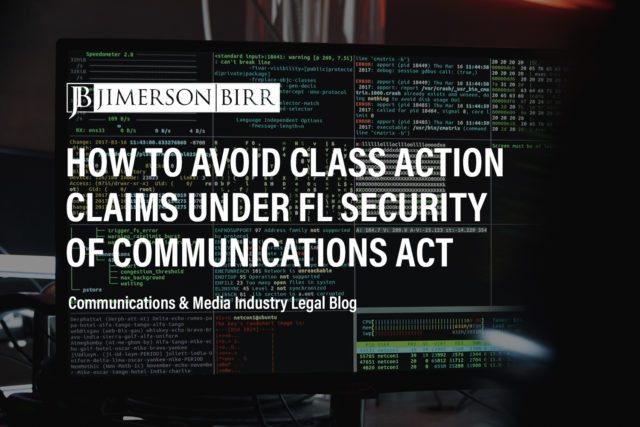How does FCC and FTC dispute resolution affect communications and media companies?
FCC and FTC dispute resolution plays a crucial role in shaping the landscape for communications and media companies in Florida. These agencies are tasked with enforcing regulations and addressing disputes related to various aspects of the industry, including telecommunications, broadcasting, and consumer protection.
FCC dispute resolution primarily focuses on matters related to telecommunications, such as spectrum allocation, licensing, and compliance with regulations governing the use of the airwaves. For communications and media companies operating in Florida, FCC dispute resolution can impact their ability to obtain licenses, deploy infrastructure, and navigate regulatory compliance requirements.
On the other hand, FTC dispute resolution primarily deals with consumer protection issues, including false advertising, deceptive business practices, and privacy violations. For communications and media companies in Florida, FTC dispute resolution can affect their marketing practices, customer relationships, and compliance with federal consumer protection laws.
Need help regarding FCC and FTC dispute resolution? Schedule your consultation today with a top communications and media attorney.
In Florida, which laws and regulations apply to FCC and FTC dispute resolution?
- FCC Regulations: Communications and media companies in Florida must comply with FCC regulations outlined in Title 47 of the Code of Federal Regulations (CFR), covering various aspects of telecommunications, broadcasting, and wireless communication.
- FTC Act: The Federal Trade Commission Act empowers the FTC to prevent unfair methods of competition and unfair or deceptive acts or practices affecting commerce. This includes regulating advertising practices and protecting consumers from fraudulent or deceptive business practices.
- Florida Deceptive and Unfair Trade Practices Act (FDUTPA): This state law mirrors many provisions of the FTC Act and prohibits unfair methods of competition, unconscionable acts or practices, and deceptive advertising.
What are common issues regarding FCC and FTC dispute resolution that lead to litigation?
The following issues are among the most common in actions regarding FCC and FTC dispute resolution:
- Misleading Advertising Claims: Businesses may face litigation due to false or misleading advertising claims, which violate FTC regulations. This includes deceptive marketing practices that misrepresent product features or benefits, leading to consumer confusion or harm.
- Privacy Violations: Failure to comply with FTC regulations on consumer data privacy can result in litigation. Businesses may face legal action for unauthorized data collection, inadequate data security measures, or privacy policy violations, especially in the digital media and telecommunications sectors.
- Antitrust Violations: FCC and FTC regulate antitrust issues in the communications and media industry. Businesses engaging in anti-competitive behavior, such as price-fixing, market allocation, or monopolistic practices, may face litigation and regulatory scrutiny.
- Non-Compliance with Regulatory Requirements: Failure to comply with FCC regulations, such as licensing requirements or spectrum usage rules, can lead to enforcement actions and litigation. Similarly, non-compliance with FTC regulations, such as the Telemarketing Sales Rule or the Children’s Online Privacy Protection Act (COPPA), can result in legal consequences.
- Consumer Protection Violations: Businesses may face litigation for violations of consumer protection laws enforced by the FTC, such as deceptive trade practices, unfair billing practices, or failure to provide adequate disclosures to consumers.
We are value-based attorneys at Jimerson Birr, which means we look at each action with our clients from the point of view of costs and benefits while reducing liability. Then, based on our client’s objectives, we chart a path to seek appropriate remedies.
To determine whether your unique situation may necessitate litigation, please contact our office to set up your initial consultation.
What steps should businesses take to minimize the risk of litigation over FCC or FTC dispute resolution?
To mitigate the risk of litigation over FCC and FTC dispute resolution, businesses can implement the following strategies:
- Comprehensive Compliance Programs: Establish robust compliance programs to ensure adherence to FCC and FTC regulations, including regular audits, employee training, and internal controls to prevent violations.
- Clear and Transparent Communication: Maintain clear and transparent communication with consumers regarding product claims, pricing, and privacy practices to avoid misleading advertising claims and privacy violations.
- Data Privacy Protection: Implement strong data privacy measures, such as encryption, data minimization, and privacy-by-design principles, to protect consumer data and comply with FTC regulations.
- Antitrust Compliance Measures: Develop antitrust compliance policies and procedures to prevent anti-competitive behavior, including regular antitrust training for employees and thorough reviews of business practices.
- Consumer Complaint Resolution Mechanisms: Establish effective mechanisms for addressing consumer complaints and resolving disputes promptly to prevent escalation to litigation and regulatory enforcement actions.
Frequently Asked Questions
How long does FCC and FTC dispute resolution typically take?
The duration of FCC and FTC dispute resolution proceedings can vary depending on the complexity of the case, the level of cooperation from the parties involved, and the backlog of cases within the agencies. In some instances, resolution may take several months or even years.
Can businesses appeal the outcomes of FCC and FTC dispute resolution proceedings?
Yes, businesses have the right to appeal the outcomes of FCC and FTC dispute resolution proceedings. Appeals may be made to higher-level administrative bodies within the agencies or through the federal court system.
How can businesses stay updated on changes to FCC and FTC regulations and enforcement priorities?
Businesses can stay informed about changes to FCC and FTC regulations and enforcement priorities by regularly monitoring agency announcements, subscribing to industry newsletters, participating in trade associations, and consulting with legal counsel specializing in communications and media law.
Have more questions about an FCC or FTC dispute-related situation?
Crucially, this overview of FCC and FTC dispute resolution does not begin to cover all the laws implicated by this issue or the factors that may compel the application of such laws. Every case is unique, and the laws can produce different outcomes depending on the individual circumstances.
Jimerson Birr attorneys guide our clients to help make informed decisions while ensuring their rights are respected and protected. Our lawyers are highly trained and experienced in the nuances of the law, so they can accurately interpret statutes and case law and holistically prepare individuals or companies for their legal endeavors. Through this intense personal investment and advocacy, our lawyers will help resolve the issue’s complicated legal problems efficiently and effectively.
Having a Jimerson Birr attorney on your side means securing a team of seasoned, multi-dimensional, cross-functional legal professionals. Whether it is a transaction, an operational issue, a regulatory challenge, or a contested legal predicament that may require court intervention, we remain tireless advocates at every step. Being a value-added law firm means putting the client at the forefront of everything we do. We use our experience to help our clients navigate even the most complex problems and come out the other side triumphant.
If you want to understand your case, the merits of your claim or defense, potential monetary awards, or the amount of exposure you face, you should speak with a qualified Jimerson Birr lawyer. Our experienced team of attorneys is here to help. Call Jimerson Birr at (904) 389-0050 or use the contact form to schedule a consultation.

We live by our 7 Superior Service Commitments
- Conferring Client-Defined Value
- Efficient and Cost-Effective
- Accessibility
- Delivering an Experience While Delivering Results
- Meaningful and Enduring Partnership
- Exceptional Communication Based Upon Listening
- Accountability to Goals











